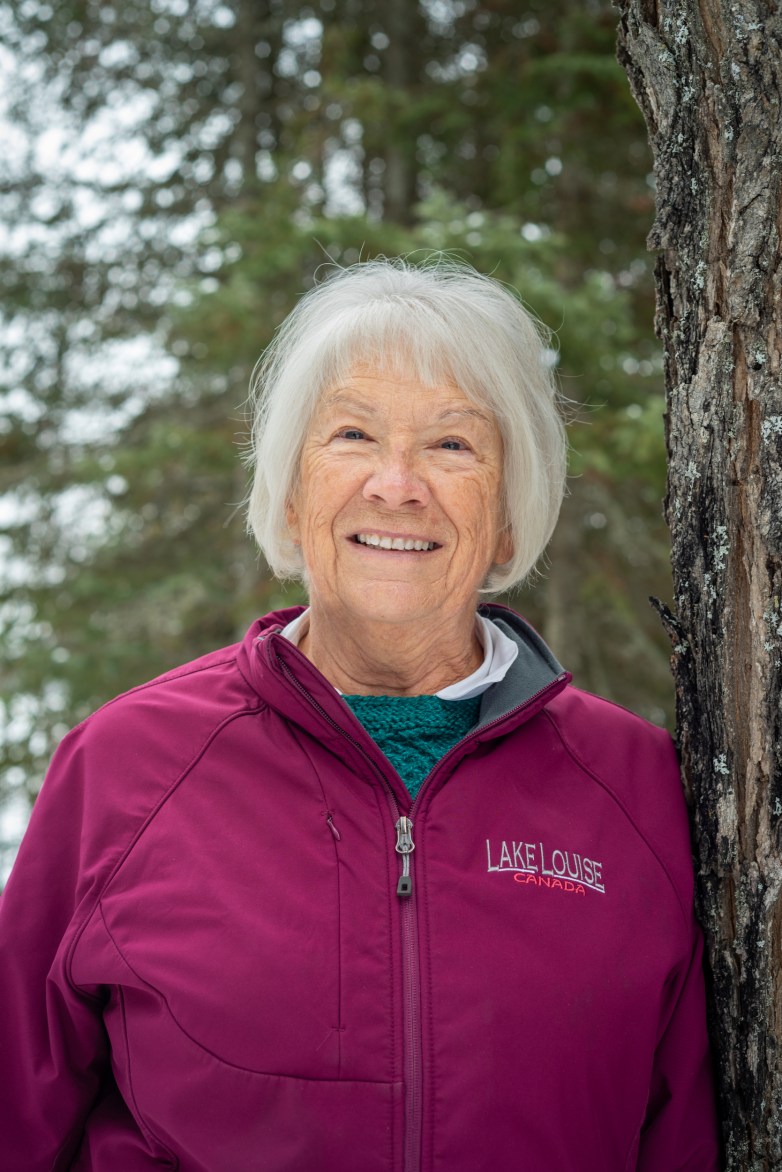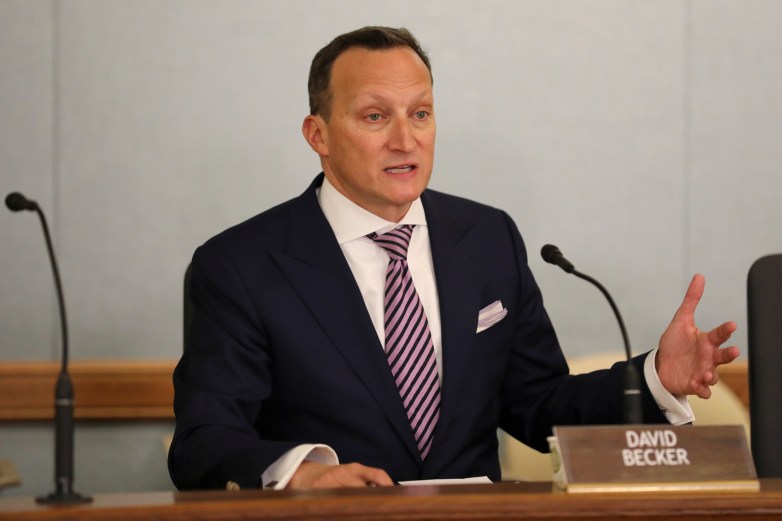Click here to read highlights from the story
- A Vilas County judge ordered a new election in the town of Presque Isle last year after finding a handful of irregularities in a town chair election in which the town clerk defeated the incumbent by one vote.
- Presque Isle was one of at least four do-over elections ordered by judges last year around the country.
- Election integrity experts warn that mistakes can happen even in well-resourced clerk’s offices. But with elections under heightened scrutiny and high election worker turnover, the country’s election system will be under greater strain in 2024.
For 32 years, Lorine Walters ran elections in what is known as “Wisconsin’s Last Wilderness.” It was pretty routine until last spring, when an election rarity occurred — in a race in which she was a candidate.
“You can’t make this stuff up,” she said.

Walters, then the town clerk in Presque Isle in Vilas County, had challenged incumbent John MacLean for town chair. She won by one vote, 242 to 241. A recount confirmed the result. But MacLean sued Walters and other election officials. A judge, finding mistakes were made, ordered a new election.
The remedial election was held in November. MacLean won — after what Walters described as a bruising second campaign.
“This was an excruciating process, the whole thing,” said Walters, 76, who was found to be partly at fault. “It’s taken me a while to bounce back from it. It was a very difficult time.”
At least four times in 2023, Wisconsin Watch found, judges in Wisconsin and three other states took the extraordinary step of ordering new elections after finding irregularities in the original balloting in local races decided by thin margins.
“It’s probably not quite as rare as winning the Powerball lottery, but it’s pretty close,” said David Becker, executive director of the Center for Election Innovation and Research, a Washington, D.C.-based nonprofit. “It’s a very high bar for ordering a redo of an election.”
Becker and other election experts said they are not aware of any annual counts of past court-ordered elections. But they said they see the four examples as evidence of increased scrutiny on the administration of elections and more willingness by candidates to contest close results in court.
The scrutiny comes as election offices struggle with staff turnover and threats heading toward the 2024 presidential vote.
“All of this is a reminder that the pressure that we put on (election officials) to execute this flawless election, when often we haven’t given them the tools and the people to do it, is extraordinary,” said Jennifer Morrell, CEO of The Elections Group, a nonpartisan group that advises election officials.
Single-vote margin in Wisconsin case
In the April election in Presque Isle, 100 miles north of Wausau, 76% of the town’s 649 registered voters cast ballots — the highest percentage of any town in the county.
In August, Vilas County Circuit Judge Martha Milanowski threw out the result and ordered a do-over election after finding that two absentee ballots were cast illegally. One was by a voter in Illinois who had voted in the past in Wisconsin but hadn’t registered in Wisconsin for the spring election. The proper procedure wasn’t followed for the other: Walters had sent that voter a ballot before receiving his request by mail.
Walters said she didn’t realize the part-time Illinois resident wasn’t properly registered. She said she sent the other voter an absentee ballot because she had been in contact with him and didn’t realize she should not have sent it before receiving his official request by mail.
Milanowski also found that three absentee ballot envelopes didn’t include witness addresses, including one Walters had signed in her role as town clerk, and that the town’s Board of Canvassers didn’t follow the correct procedure for the recount, which requires reviewing absentee ballot envelopes.
“The irregularities and the stakes associated with this election and recount do seriously undermine the appearance of fairness,” the judge said.
In the Nov. 14 do-over, the only race on the ballot, MacLean defeated Walters, who was no longer the town clerk, 294 to 265. Turnout among registered voters was 84%, eight points higher than in April.
MacLean said more attention needs to be paid to whether part-time Wisconsin residents can legally vote in Wisconsin, particularly those who toggle their registrations between states. He also said that, based in part on the number of campaign mailings that were returned to him as undeliverable, the town’s voter rolls aren’t up to date. “So, it’s gotta be cleaned up,” he said.

A Dane County judge recently ruled that minor errors on absentee ballot envelopes can’t be used to disqualify a ballot under the federal Voting Rights Act, which conflicted with a Waukesha County judge’s 2022 decision that clerks can’t fill in missing information on absentee ballot envelopes.
Doug Poland, one of MacLean’s attorneys in the case, who has also represented Democratic voters challenging the state’s legislative maps, said what happened in Presque Isle reflects that municipal clerks, especially in small towns, need better resources and support, including more frequent training, to prevent mistakes. One solution could be, rather than every town and village clerk running a local election on their own, giving county clerks more authority to oversee local elections.
“What we discovered raises questions not about integrity, or honesty or security of our elections, but whether we are asking people to do more than they reasonably can be expected to do with the resources made available to them,” Poland told Wisconsin Watch.
Sam Liebert, Wisconsin director of All Voting is Local, a liberal group that works to reduce barriers to voting, criticized the decision at the time. In an interview, he said such orders could lead losing candidates to go to court in bad faith in search of judges who might be sympathetic to them.
“It can erode the faith in our democratic processes … and the institution of voting,” he said.
Judges don’t like to order new balloting because it “changes the election,” with a different set of voters casting ballots the second time, said Dane County Clerk Scott McDonell, chair of the elections committee of the Wisconsin County Clerks Association.
Errors like those made in Presque Isle “could happen even in a well-resourced office,” said Morrell, a former local elections official in Utah and Colorado. “Sometimes mistakes happen.”
Timeline in 2023 Presque Isle case
April 4: Lorine Walters defeats incumbent John MacLean, 242 to 241, in the election for town chairman in Presque Isle, 100 miles north of Wausau. Walters was the town clerk at the time. Of the town’s 649 registered voters, 492, or 76%, cast ballots — the highest percentage of any town in Vilas County. A recount confirmed the result.
April 19: MacLean challenges the result by suing the town’s election officials, including Walters, in Vilas County Circuit Court.
Aug. 31: Vilas County Circuit Judge Martha Milanowski invalidates the election results and orders a new election be held. She threw out two absentee ballots, saying they were cast illegally: One ballot was cast by a voter who hadn’t registered. The proper procedure wasn’t followed for the other: Walters had sent that voter a ballot before receiving his request by mail. Milanowski also found that three absentee ballots were improperly processed and that the town’s Board of Canvassers didn’t follow the correct procedure for the recount, which requires reviewing absentee ballot envelopes.
Nov. 14: In the redo election, MacLean defeats Walters by 29 votes, 294 to 265, in the only race on the ballot. Walters was no longer the town clerk. Turnout is 84%, eight points higher than in April.
Absentee ballot processing and illegal voting were issues in the other cases:
- Louisiana: A state judge ordered a new election, and an appeals court on Dec. 12 affirmed the decision, after the Republican candidate for sheriff in Caddo Parish lost by one vote in the Nov. 18 balloting and sued. Two people illegally voted twice and four others who cast ballots weren’t eligible to vote.
- Connecticut: A state judge on Nov. 1 ordered a redo of the September Democratic primary for mayor of Bridgeport, in which Mayor Joe Ganim defeated his challenger by 251 votes. Surveillance videos showed people stuffing multiple absentee ballots into outdoor collection boxes. Under Connecticut law, voters using a collection box must drop off their completed ballots themselves, or designate a certain person to do it for them. Ganim won the November general election and the Democratic primary redo on Tuesday.
- Mississippi: A state judge on Dec. 27 ordered a partial new election for the position of tax assessor and collector in Pearl River County. One candidate defeated another by three votes, 2,915 to 2,912, in the Aug. 29 voting for the seat, where the incumbent didn’t seek reelection. The judge ordered a new election in two precincts after finding that two votes were cast illegally. He also found that one vote in another precinct should have been added for the losing candidate, who contested the initial result in court.
There’s also a pending trial. A New Jersey state judge is weighing whether to order a new election for a June primary election for an Atlantic City council seat that was decided by six votes. A ruling is expected Feb. 5.
The court-ordered remedial elections come in the wake of the 2020 presidential election, which led to widespread litigation in attempts to reverse Joe Biden’s victory over Donald Trump.

“They’ve been abused, threatened and harassed for well over three years now, not because they did a bad job but because they somehow pulled off one of the most incredible democratic feats in American history,” Becker said of U.S. election workers. “They managed the highest turnout we’ve ever seen in the middle of a global pandemic. And that election has withstood the most scrutiny that any election in American history has ever had to withstand through multiple courts and every time it’s been upheld.”
Nevertheless, election officials are facing closer scrutiny while, in some cases, operating with high staff turnover. High turnover in local election offices in several battleground states “means these offices will be understaffed or staffed with inexperienced administrators” in the 2024 elections, according to a report by the Voting Rights Lab, a liberal national voting rights group. Monroe County, Indiana, is searching for an elections supervisor for the third time in less than a year, following a resignation, according to a local news report.
“Generally speaking, the offices I work with are understaffed and underfunded, consistently,” Morrell said.
McDonell said that “the job doesn't pay that well to begin with and then you have threats on top of it.”

Threats to election workers led the U.S. Justice Department to form a task force to prosecute such cases.
Liebert said it’s not certain the string of 2023 do-over elections foreshadows a court-ordered do-over of the 2024 presidential vote, but he added: “I don’t think any tactics or tools are off the table.”
Becker and Morrell said that while court-ordered do-overs might be a strategy to contest results in smaller jurisdictions, where elections can be decided by a handful or a few dozen votes, the margins will be much larger in the presidential race.
“To find 10,000 ballots is impossible, it’s never happened,” Becker said.
At the same time, razor-thin election outcomes aren’t limited to towns or other small jurisdictions.
A 2020 Racine Unified School District referendum that’s expected to cost taxpayers $1 billion over 30 years was approved by five votes out of nearly 33,500 votes cast, 16,748 to 16,743. The Wisconsin Supreme Court unanimously ruled challengers don’t have a right to have ballots re-examined in court after the board of canvassers conducted a proper review.
Walters said the judge’s order in Presque Isle was the right decision. But she expects more court challenges of close elections because, since the 2020 presidential contest, even in small towns like Presque Isle, people are more partisan and politically polarized.
“With so much division, I think it’s going to get worse, not better,” she said.
2024 Wisconsin election calendar
Feb. 20: Spring primary: All county board seats, many school board offices, local judges and some municipal offices, including mayor and city council, if there are more than two candidates vying for a seat.
April 2: Spring election and presidential preference: In addition to the presidential primary, county, school board, judge and municipal offices plus two statewide ballot measures, both on elections: 1. Prohibits any level of government in the state from applying or accepting non-governmental funds or equipment for election administration. 2. Provides that only election officials designated by law may administer elections.
Aug. 13: Fall primary: Races include U.S. Senate, U.S. House of Representatives and the state Legislature, as well as district attorney, county executive, county clerk, register of deeds and treasurer, if there are two or more candidates running from the same party.
Nov. 5: General election: Races include president, U.S. Senate, U.S. House of Representatives and the Legislature, as well as district attorney, county executive, county clerk, register of deeds and treasurer.
The nonprofit Wisconsin Watch (www.WisconsinWatch.org) collaborates with WPR, PBS Wisconsin, other news media and the University of Wisconsin-Madison School of Journalism and Mass Communication. All works created, published, posted or disseminated by Wisconsin Watch do not necessarily reflect the views or opinions of UW-Madison or any of its affiliates.
This article first appeared on Wisconsin Watch and is republished here under a Creative Commons license.![]()


